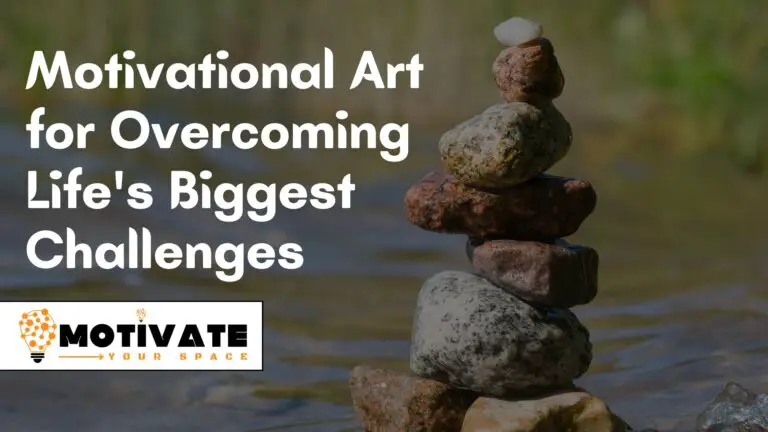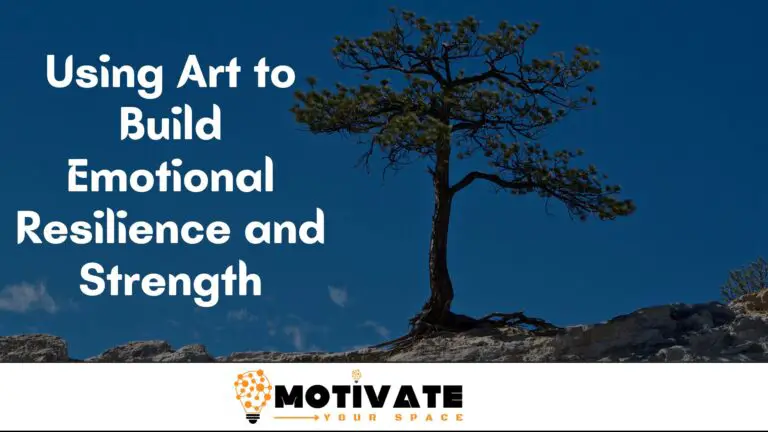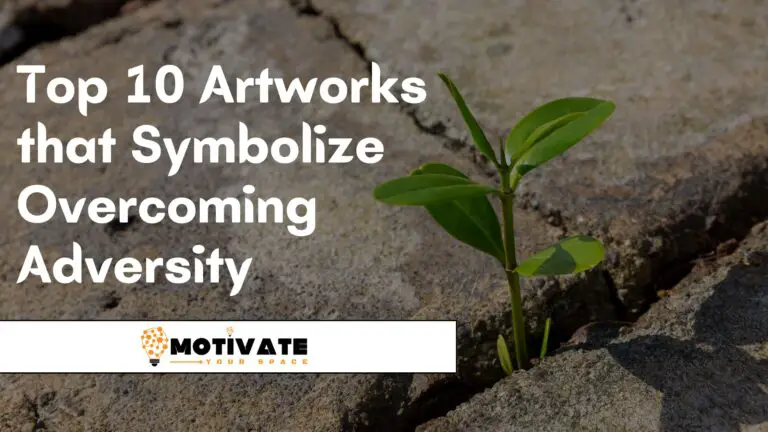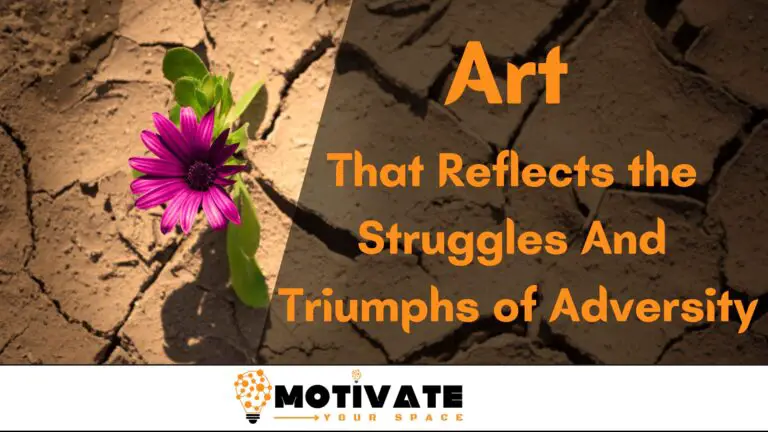How Art Can Inspire Resilience During Challenging Times: Uplift Your Spirit
Art can inspire resilience by providing emotional support and fostering a sense of community. It helps people express and process emotions.Art Can Inspire Resilience During Challenging Times
Art has always been a powerful tool for human expression. During challenging times, it can be a source of comfort and strength. Artistic endeavors, whether visual arts, music, or literature, offer a way to channel emotions constructively. Engaging with art helps people find meaning and hope.
It encourages a sense of connection and shared experience. This shared experience can be crucial for emotional healing and resilience. By participating in or appreciating art, individuals can navigate through tough periods with renewed vigor. Art’s ability to inspire and uplift makes it invaluable during difficult times.
The Power Of Art In Adversity
During tough times, art becomes a beacon of hope. It offers solace and inspiration, reminding us of our inner strength. This section explores The Power of Art in Adversity and how it has fostered resilience throughout history and in modern times.
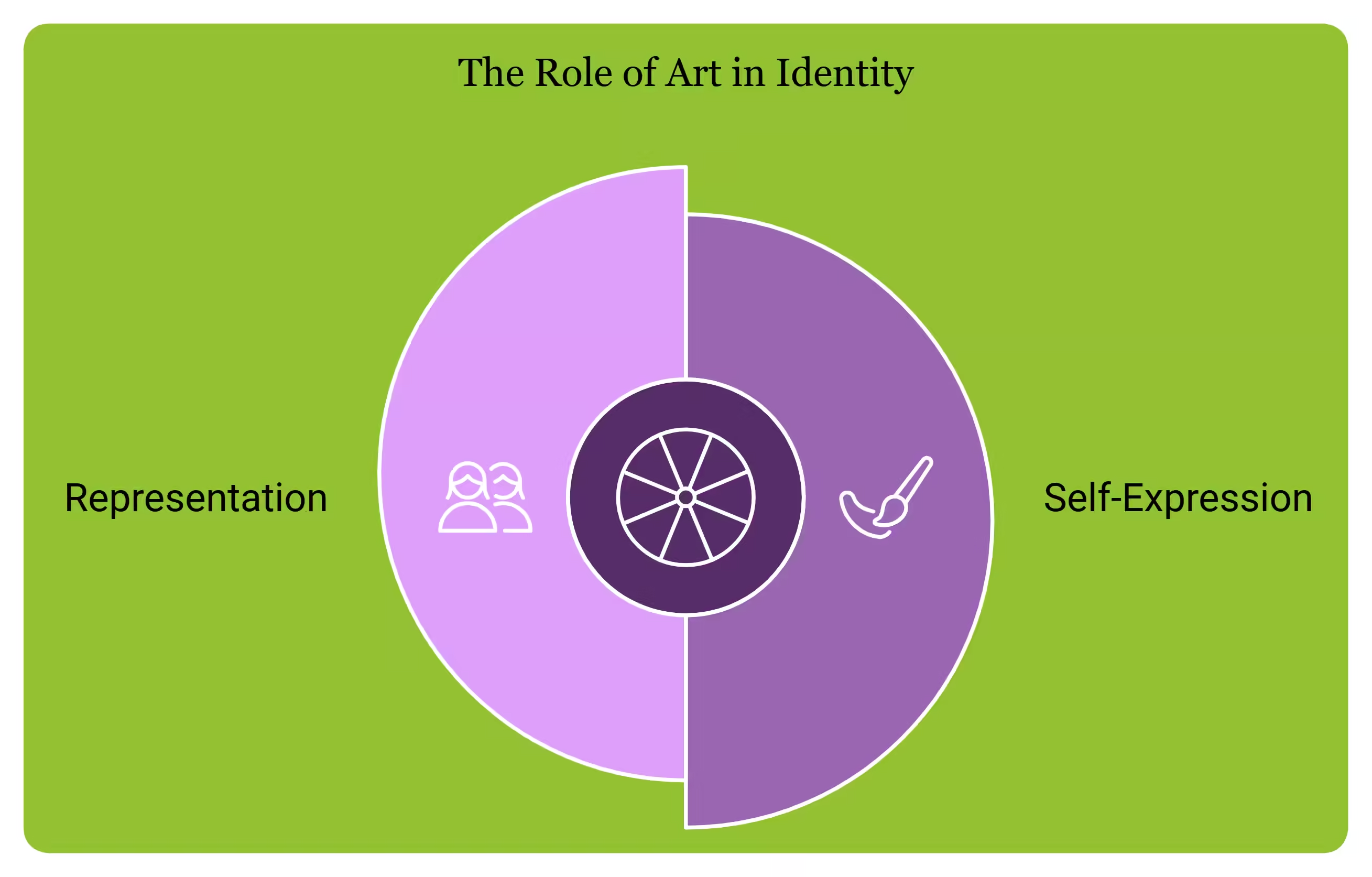
Historical Examples
Throughout history, art has emerged as a powerful tool during crises.
- In World War II, artists painted murals to lift spirits.
- During the Great Depression, photographers captured resilience in the face of hardship.
These works showcased the human spirit’s ability to endure and thrive.
Modern-day Impact
Today, art continues to play a vital role during challenging times.
- Street Art: Murals offer messages of hope and unity.
- Digital Art: Artists share uplifting works on social media.
- Music: Songs inspire and comfort those in distress.
Art connects people, fostering a sense of community and resilience.
Art reminds us of our strength, helping us navigate adversity. It offers a universal language of hope and perseverance.
Art As A Therapeutic Tool
Art can be a powerful therapeutic tool. It helps people cope with tough times. Creating or viewing art offers a way to express feelings. It also helps in finding peace and strength within oneself.
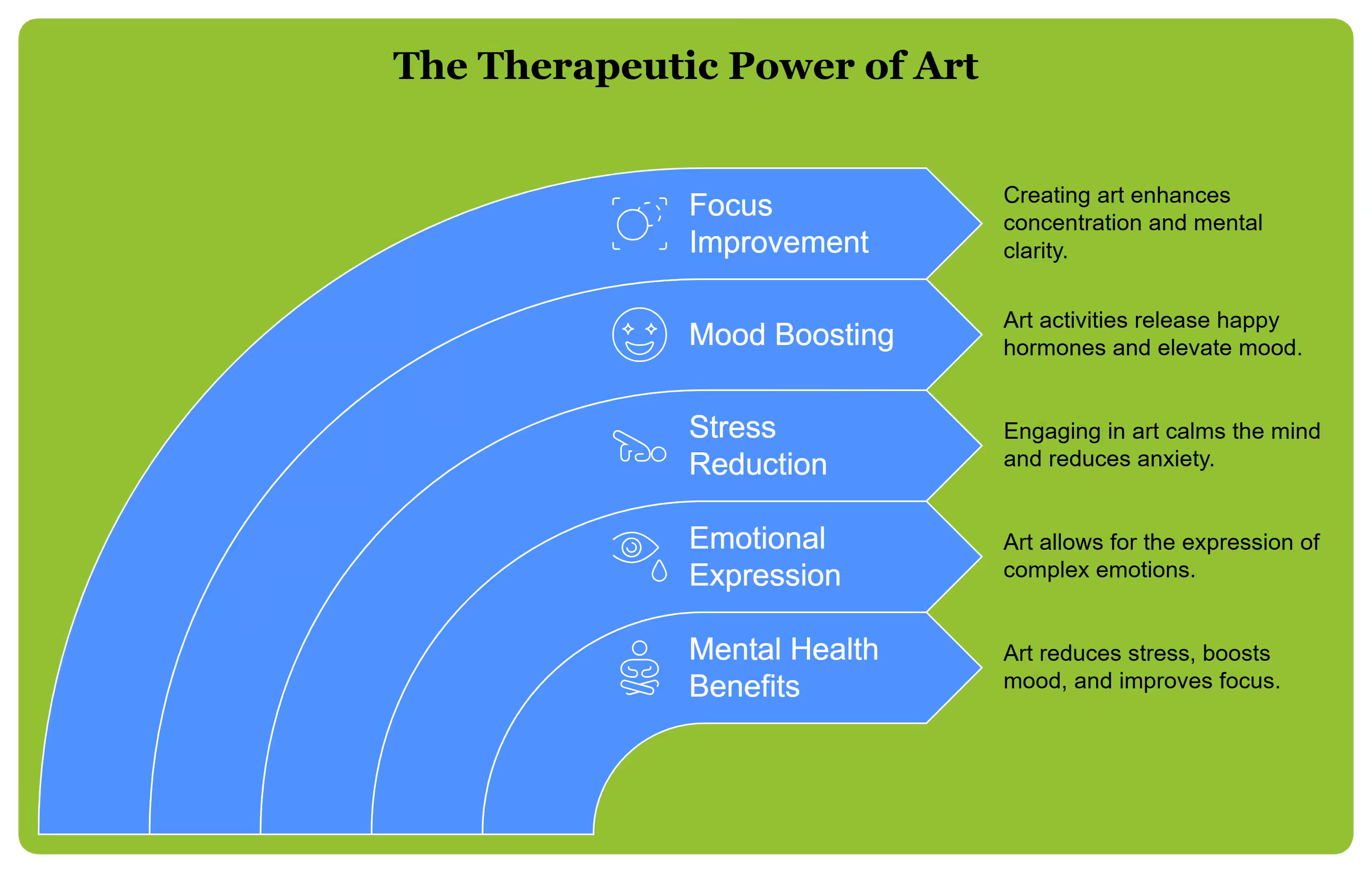
Mental Health Benefits
Art has many mental health benefits. It reduces stress and anxiety levels. Engaging in creative activities boosts mood and overall well-being.
- Reduces Stress: Drawing or painting calms the mind.
- Boosts Mood: Art activities release happy hormones.
- Improves Focus: Creating art enhances concentration.
Art therapy is effective for various mental health issues. It provides a safe space to explore emotions. This can lead to better mental health outcomes.
Emotional Expression
Art allows for emotional expression. Sometimes words are not enough. Creating art helps people express complex feelings.
Many find it easier to draw or paint their emotions. This process can bring clarity and relief. Art becomes a visual diary of one’s emotional journey.
| Emotion | Art Form |
|---|---|
| Sadness | Watercolor painting |
| Anger | Abstract art |
| Happiness | Colorful drawings |
Art helps in processing emotions in a constructive way. It can turn negative feelings into something beautiful. This transformation builds resilience and strength.
Creating Art For Personal Resilience
Creating art can be a powerful tool for personal resilience. It helps individuals navigate challenging times. Art provides an emotional outlet and a sense of control. Engaging with art can bring a sense of calm and focus. This section explores how to start creating art for resilience.
Starting Simple
Begin with basic materials like pencils and paper. Drawing simple shapes can be soothing. Avoid complex projects at the start. Focus on easy tasks to build confidence. Experiment with colors to express emotions. Simple activities can reduce stress and anxiety.
| Activity | Materials Needed |
|---|---|
| Drawing | Pencil, Paper |
| Coloring | Crayons, Coloring Book |
| Painting | Watercolors, Brush, Paper |
Finding Your Medium
Discovering the right medium can enhance your creative process. Try different forms of art to see what resonates. Some may prefer painting, while others enjoy sculpting. Experiment with various materials like clay, fabric, or digital tools.
- Painting: Use watercolors or acrylics.
- Sculpting: Work with clay or playdough.
- Digital Art: Explore graphic design software.
- Collage: Combine pictures and textures.
Each medium offers unique benefits. Painting can be expressive and freeing. Sculpting allows for tactile interaction. Digital art provides endless possibilities. Collage encourages creativity through mixed media.
Choosing the right medium is a personal journey. It should feel enjoyable and fulfilling. Don’t rush the process. Take your time to explore and find what works best for you.
Art In Community Building
Art plays a vital role in bringing people together. It fosters a sense of unity and shared purpose. During challenging times, art can be a beacon of hope and resilience. Communities can find strength through collaborative projects and public art initiatives.
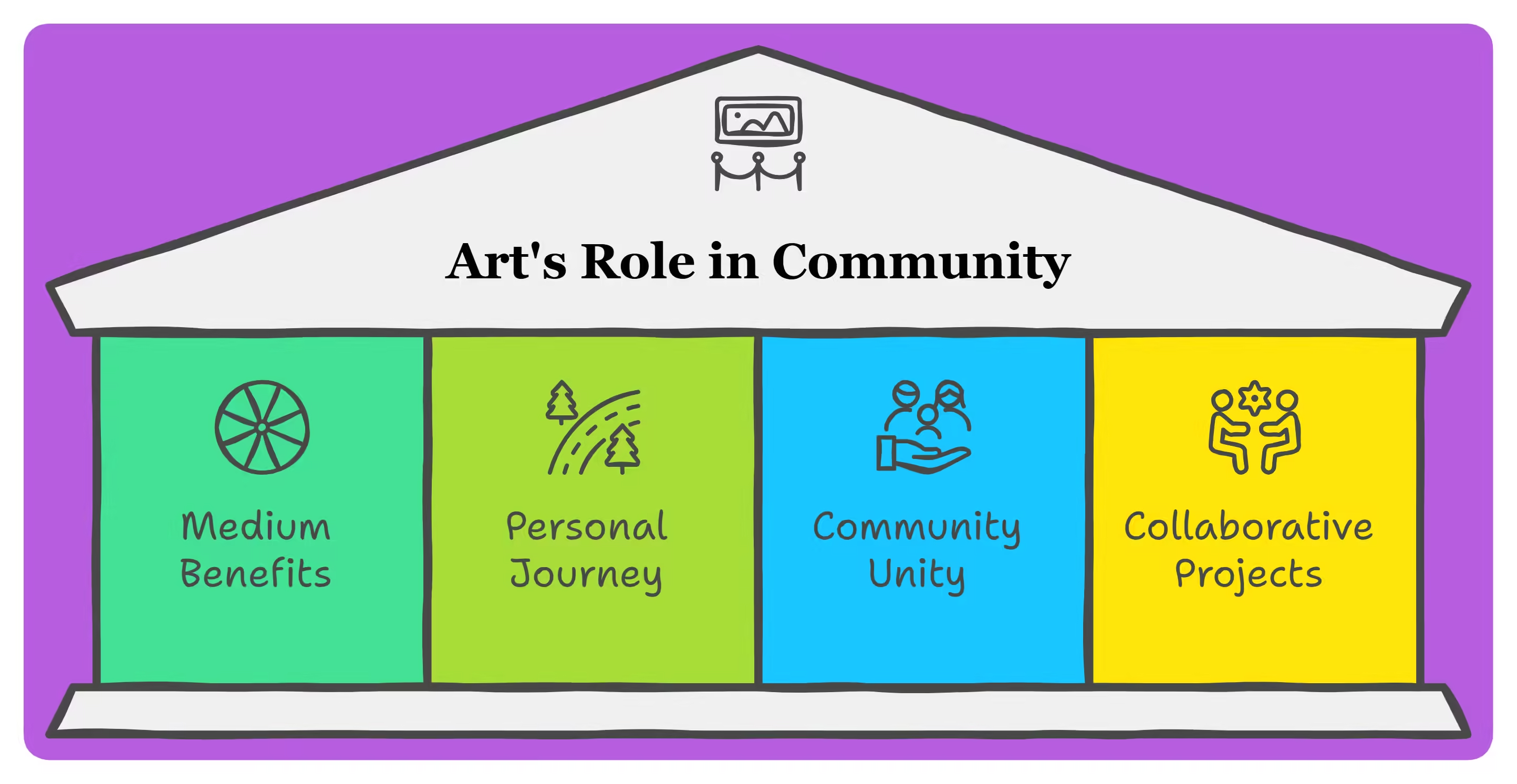
Collaborative Projects
Collaborative art projects can unite diverse groups. These projects encourage teamwork and mutual understanding. Participants share their stories and experiences through art. This shared effort builds strong bonds within the community.
Examples of Collaborative Art Projects:
- Community murals
- Group sculpture projects
- Joint photography exhibits
Public Art Initiatives
Public art initiatives make art accessible to everyone. They transform public spaces into vibrant, expressive areas. These projects often reflect the community’s identity and values.
Benefits of Public Art Initiatives:
- Boosts community pride
- Encourages local engagement
- Creates lasting visual impact
Examples of Public Art Initiatives:
- Street art festivals
- Outdoor sculptures
- Interactive installations
Art And Healing Spaces
Art has a unique power to heal and inspire. During challenging times, spaces adorned with art can offer much-needed comfort. These healing spaces can be hospitals, clinics, or community centers. Art in these spaces fosters resilience and provides a sense of hope.
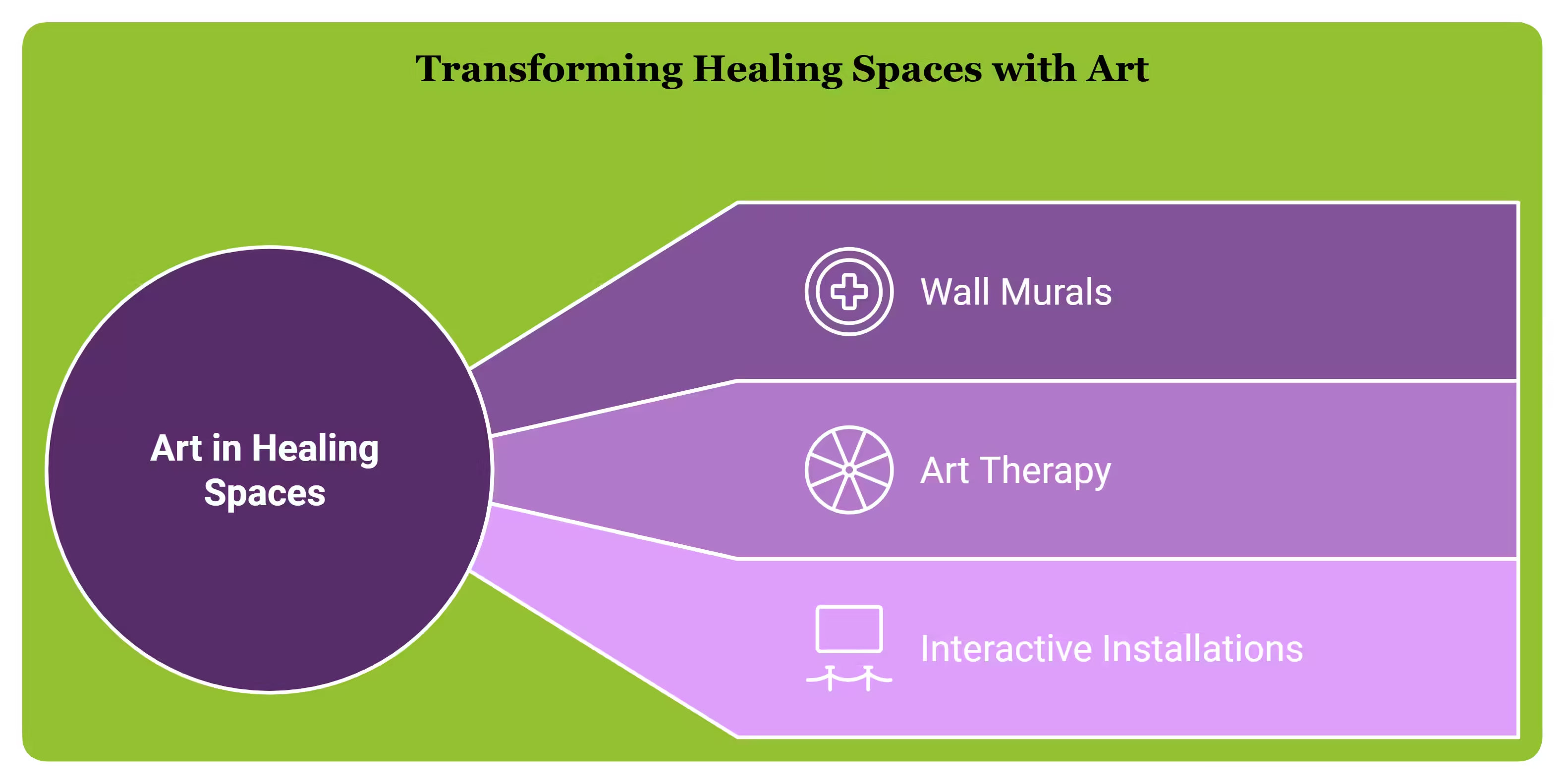
Hospitals And Clinics
Hospitals and clinics often feel cold and sterile. Adding art can change this atmosphere. Colorful paintings or soothing landscapes can reduce stress. Patients feel more relaxed and positive. Here are some ways art can be used:
- Wall Murals: Brighten up waiting rooms and hallways.
- Art Therapy: Helps patients express emotions and heal.
- Interactive Installations: Engage patients and their families.
| Type of Art | Benefit |
|---|---|
| Wall Murals | Brightens environment |
| Art Therapy | Emotional expression |
| Interactive Installations | Engages patients |
Community Centers
Community centers are hubs of activity and support. Art in these spaces fosters a sense of belonging. It can also inspire resilience among community members. Some ways to incorporate art include:
- Local Art Exhibits: Showcasing local talent boosts community pride.
- Workshops: Art workshops can be therapeutic and educational.
- Public Art Projects: Involving the community in creating murals or sculptures.
These artistic endeavors can transform community spaces into healing environments. They provide comfort, inspire hope, and foster resilience during challenging times.
Digital Art And Virtual Galleries
During challenging times, art provides a way to cope. Digital art and virtual galleries bring this to everyone. These platforms offer a way to experience art from home. They connect artists with audiences worldwide.
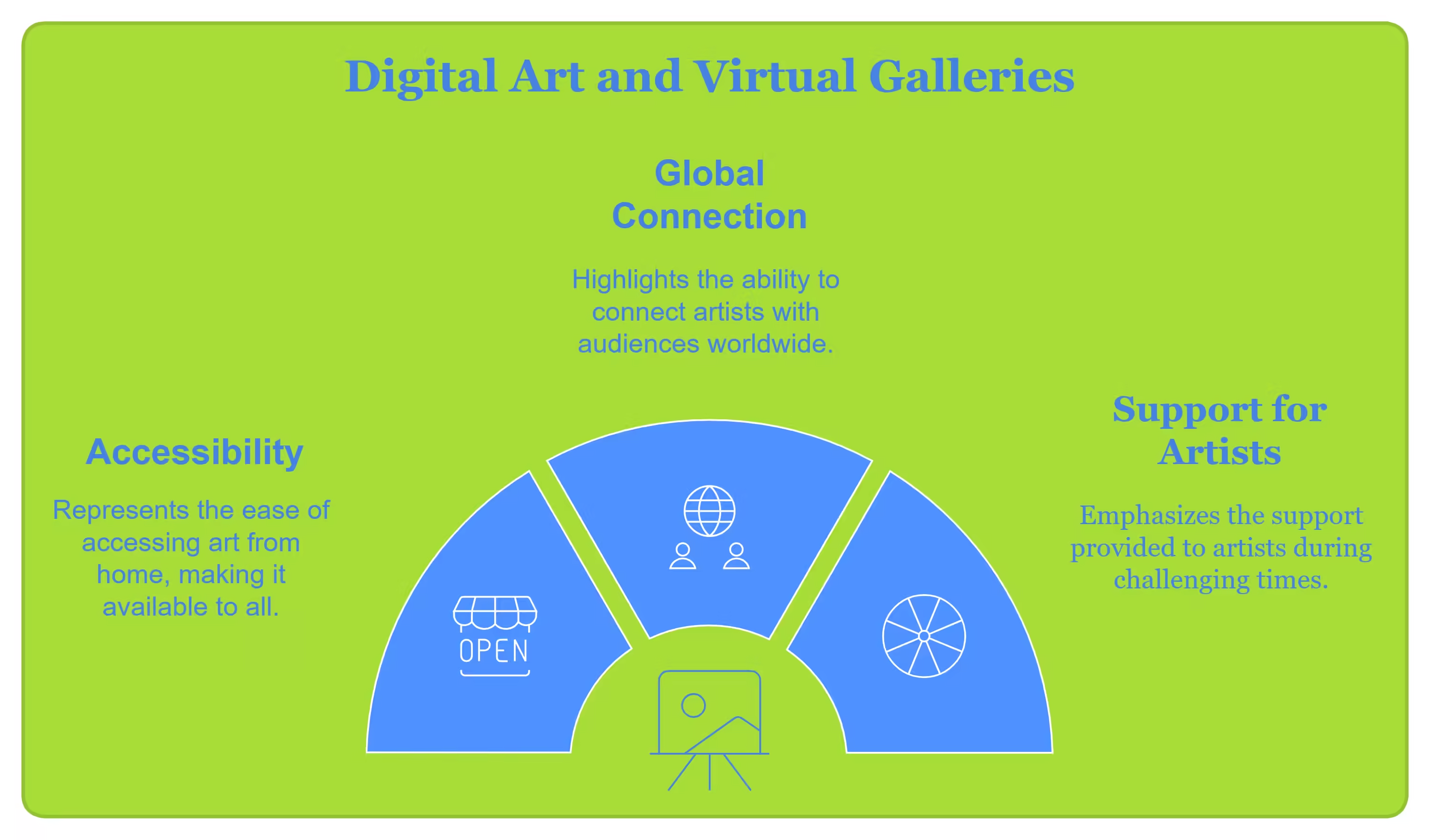
Online Exhibitions
Online exhibitions are a great way to see art. They are easy to access and open to all. Many museums and galleries offer virtual tours. You can explore famous art pieces from your living room. This makes art accessible to everyone. It also supports artists during hard times.
- Accessible from anywhere
- Open 24/7
- Supports artists globally
| Platform | Features |
|---|---|
| Google Arts & Culture | Virtual tours, high-resolution images |
| Museum of Modern Art (MoMA) | Online exhibitions, artist interviews |
Social Media Platforms
Social media platforms play a big role in digital art. Artists share their work on Instagram, Facebook, and Twitter. This helps them reach a large audience. People can follow their favorite artists and see new work.
These platforms also host live art sessions. Artists can show their process and interact with fans. This builds a strong connection between artists and viewers.
Art challenges and hashtags keep the community engaged. These activities inspire creativity and resilience.
Inspiring Stories Of Resilience
Art has a unique power to uplift spirits during tough times. Stories of resilience and creativity show how art can be a beacon of hope. Below are some inspiring stories that highlight this remarkable strength.
Artists Overcoming Adversity
Many artists face significant challenges but still create beautiful work. Their stories inspire others to push through difficult times.
- Frida Kahlo: Despite suffering from polio and a severe bus accident, she painted masterpieces. Her art expressed her pain and resilience.
- Vincent van Gogh: Battling mental illness, he created over 2,000 artworks. His vibrant paintings continue to inspire people worldwide.
- Henri Matisse: Confined to a wheelchair later in life, he developed a new art form. His cut-out art is now celebrated globally.
Community Success Stories
Communities often come together to create art, fostering resilience and unity. These stories show the power of collective creativity.
- New Orleans Post-Katrina: After Hurricane Katrina, artists united to rebuild the city’s spirit. Murals and music festivals revitalized devastated neighborhoods.
- COVID-19 Street Art: During the pandemic, street artists worldwide created murals of hope. These artworks brought joy to communities in lockdown.
- War-Torn Countries: In places like Syria, artists use their work to document struggles and hope. Their art keeps the spirit of resilience alive.
These stories show how art can inspire resilience during challenging times. They highlight the human spirit’s ability to overcome adversity and find hope in creativity.
How To Support Art In Your Community
Supporting art in your community is essential for fostering resilience. Art brings people together and inspires hope. By actively participating, you help keep the creative spirit alive. Below are some ways to support local art.
![]()
Volunteering And Donations
Volunteering can make a big difference. Many art organizations need help with events and programs. You can offer your time to assist with gallery openings, workshops, and exhibitions.
Donations are another vital way to support art. Financial contributions help fund supplies, pay artists, and maintain spaces. Even small amounts can have a big impact. Check if local art centers or museums have donation programs.
- Offer your time for events.
- Donate money or supplies.
- Promote donation drives on social media.

Attending Local Events
Attending local art events shows support and boosts morale. Your presence encourages artists and helps build a vibrant community. Look for gallery openings, theater performances, and art fairs in your area.
Being part of these events can be enriching. You get to experience new art forms and meet creative individuals. It also helps local artists gain exposure and recognition.
- Check local listings for art events.
- Invite friends and family to join.
- Share your experiences on social media.
By volunteering, donating, and attending events, you play a crucial role. Your support helps sustain the arts and inspires resilience in challenging times.
Frequently Asked Questions
How Does Art Help With Resilience?
Art enhances resilience by providing emotional expression, stress relief, and mental clarity. It fosters creativity and problem-solving skills. Engaging in art promotes self-awareness and emotional healing, boosting overall mental health. Creative activities build adaptability and perseverance, essential for resilience.
How Does Creativity Build Resilience?
Creativity builds resilience by fostering problem-solving skills and adaptability. It encourages flexible thinking and reduces stress through self-expression.
How Do You Build Resilience In Difficult Times?
Build resilience by maintaining a positive mindset, practicing self-care, seeking support, setting goals, and staying flexible. Focus on solutions.
How Could You Show Your Resilience In Challenging Situations?
Show resilience by staying positive, adapting quickly, and focusing on solutions. Maintain a growth mindset, seek support, and learn from setbacks. Stay calm and persevere through difficulties, demonstrating strong problem-solving skills.
Conclusion
Art serves as a powerful tool to inspire resilience during challenging times. It provides an emotional outlet and fosters hope. By engaging with art, individuals can find strength and motivation. Embrace creativity to navigate life’s difficulties. Art helps us connect, heal, and grow stronger together.

